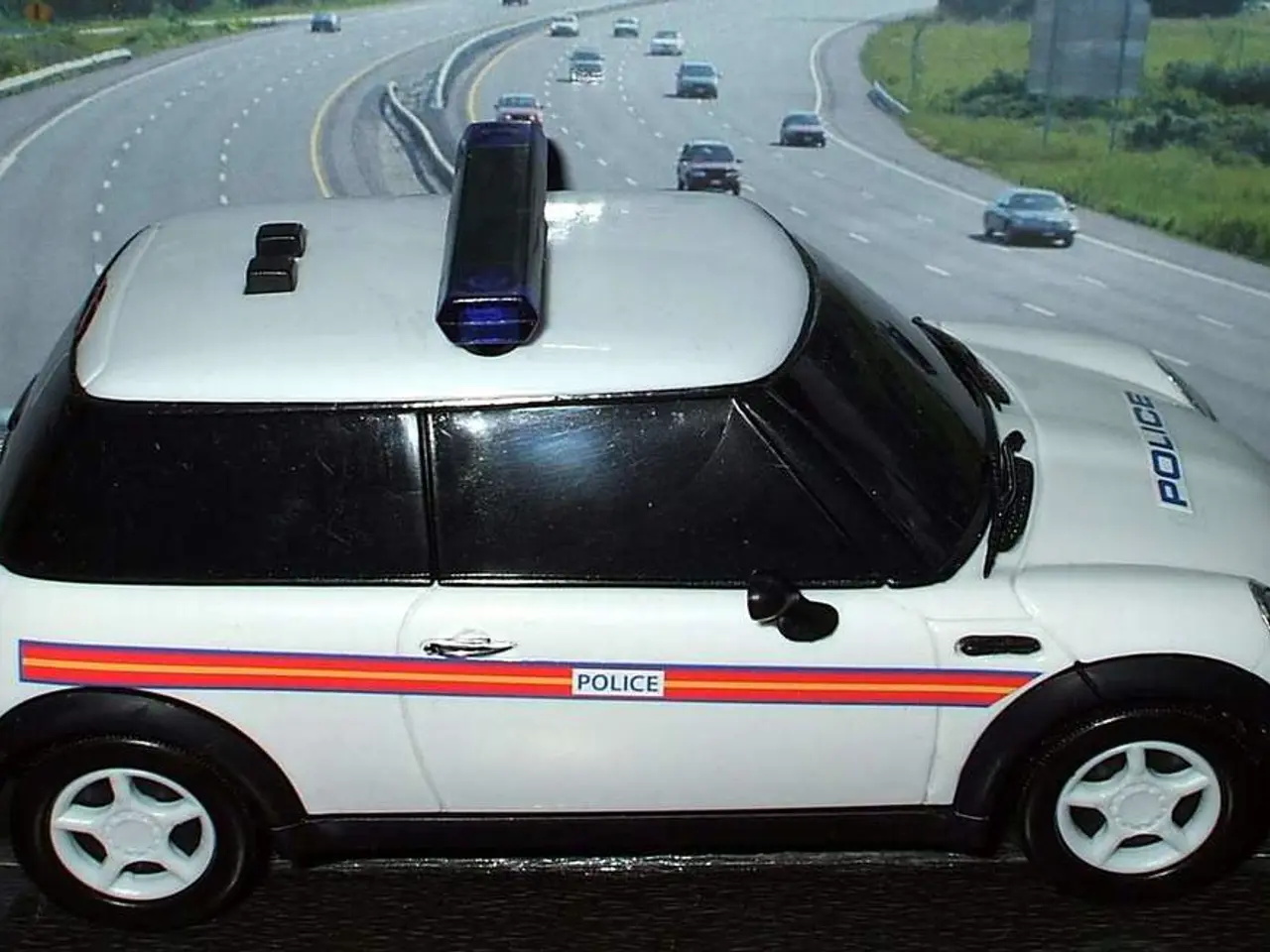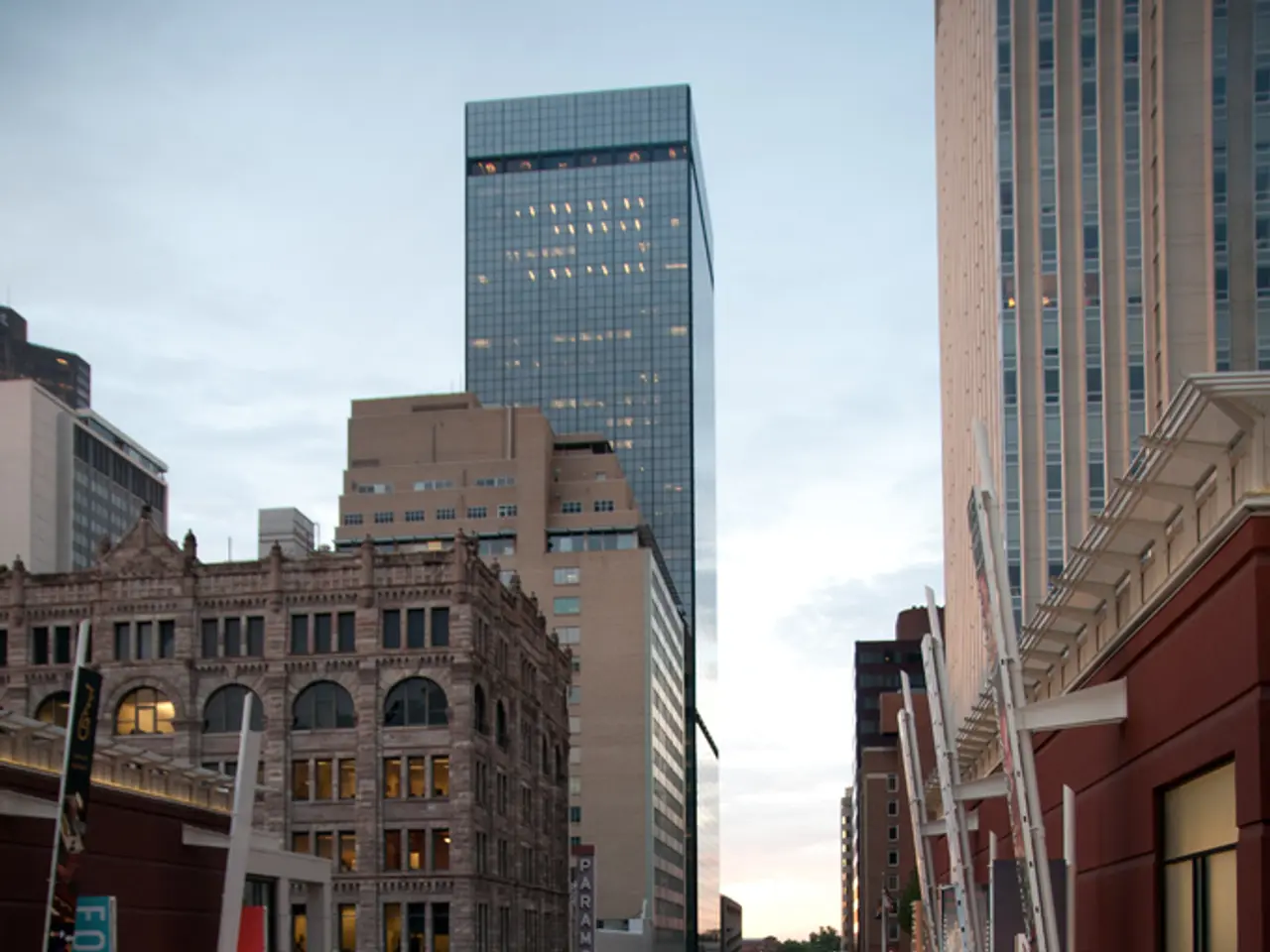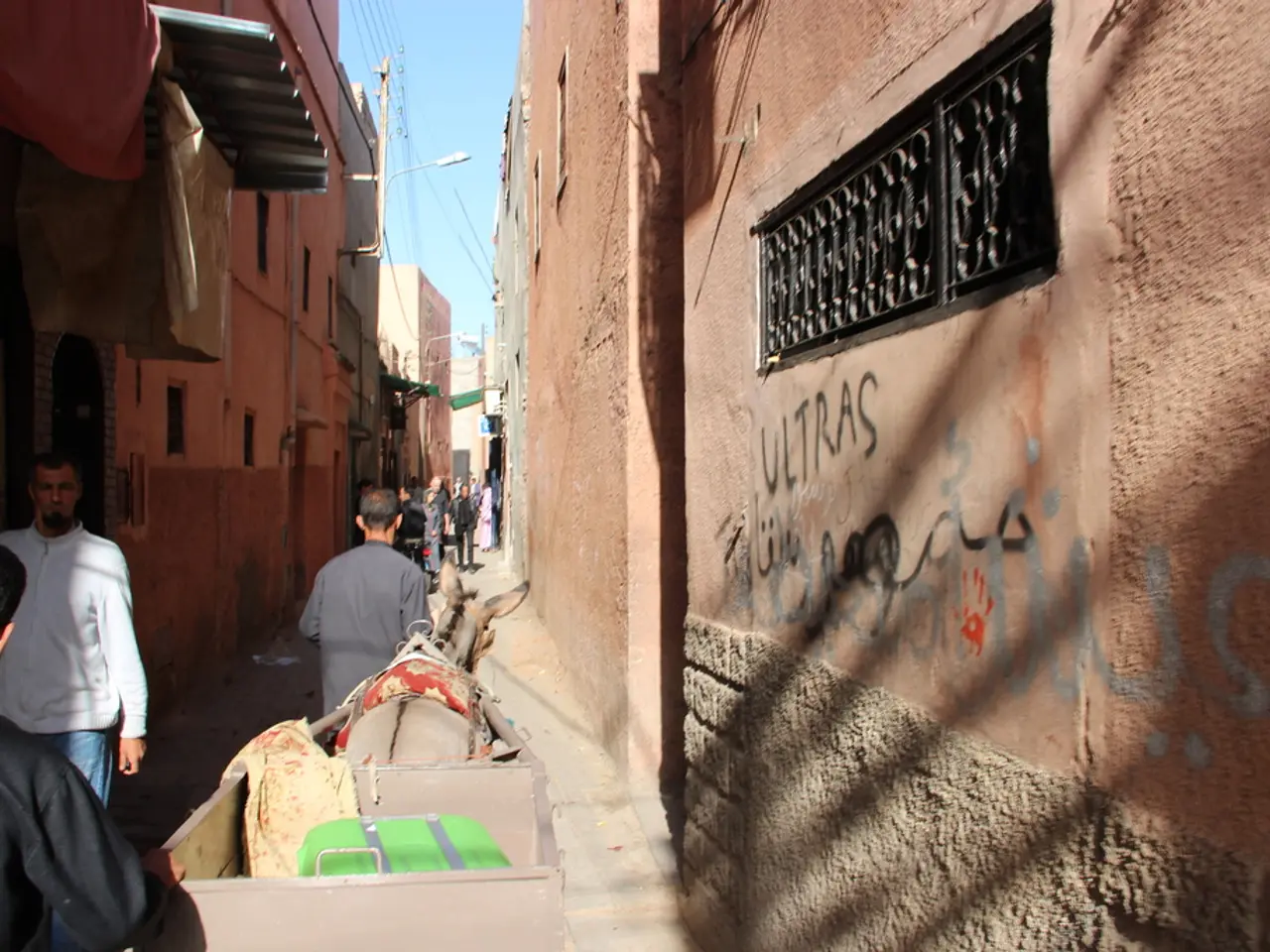Immigration operation codenamed 'Operation Trojan Horse' using a Penske rental vehicle meets resistance
Controversial Immigration Raids in Los Angeles Allegedly Violate Court Order
Recent immigration raids in Los Angeles, carried out by federal agents including Border Patrol and ICE, have been met with controversy and allegations of violating a temporary restraining order (TRO) that halted indiscriminate sweeps in Southern California.
Key details of the raids include:
- Masked and armed federal agents, some in tactical gear, have made arrests in visible public locations, sparking community fear and disruption among immigrant workers.
- The operation, dubbed "Operation Trojan Horse" by a Border Patrol official, was conducted shortly after a federal appeals court upheld a TRO against wide, indiscriminate sweeps aimed at undocumented immigrants in Southern California.
- The raids have impacted day laborers and public gathering spots, severely affecting their livelihoods and prompting protests by labor and immigrant advocacy groups.
- Critics argue that while immigrant workers face aggressive raids and detentions, employers hiring unauthorized workers remain largely unpenalized, raising concerns about selective enforcement.
Legal Implications:
- The TRO was issued to prevent broad immigration sweeps that do not target suspected individuals with warrants or probable cause, specifically in Southern California. Conducting raids that disregard this TRO could expose the federal government to legal challenges for violating court orders.
- Arrests of volunteers and advocates documenting the raids have raised tensions around constitutional rights such as free speech and citizen oversight during enforcement actions.
- Government officials, including California’s Governor Gavin Newsom, have condemned the timing and location of some raids as politically motivated and aimed at suppressing immigrant communities ahead of elections.
- The raids have ignited public protests and calls for political and legal responses to curb what critics describe as an authoritarian and unjust immigration enforcement strategy.
The raid at the Home Depot in Westlake, Los Angeles, is one such example, raising concerns about the federal government potentially violating the TRO. Penske, the truck rental company, has stated that it did not authorize its trucks for use in the raid and prohibits the transportation of people in the cargo area of its vehicles under any circumstances.
The ACLU Foundation of Southern California is investigating the incident at the Home Depot and other raids reported in the region since Saturday, raising further concerns about the federal government’s adherence to the TRO.
Los Angeles Mayor Karen Bass is considering all legal options following the raids, claiming they look like the same practices that were forbidden by the TRO. The mayor’s concerns are shared by the United Farm Workers, one of the plaintiffs in the class action lawsuit seeking to end what it alleges are unlawful immigration stops and arrests.
Advocates urge vigilance, continued documentation, and legal action to challenge these enforcement approaches while supporting immigrant rights and safety.
- The controversial immigration raids in Los Angeles, which allegedly violate a court order, have also raised concerns about the federal government's compliance with a TRO, as seen in the raid at Home Depot in Westlake, Los Angeles.
- The ACLU Foundation of Southern California is investigating several raids in the region, including the one at Home Depot, suggesting that the federal government might be disregarding the court order outlined in the TRO.
- In response to the immigration raids, Los Angeles Mayor Karen Bass is considering legal actions to challenge the federal government's enforcement approaches, claiming they resemble practices forbidden by the TRO, and echoing concerns shared by the United Farm Workers.






